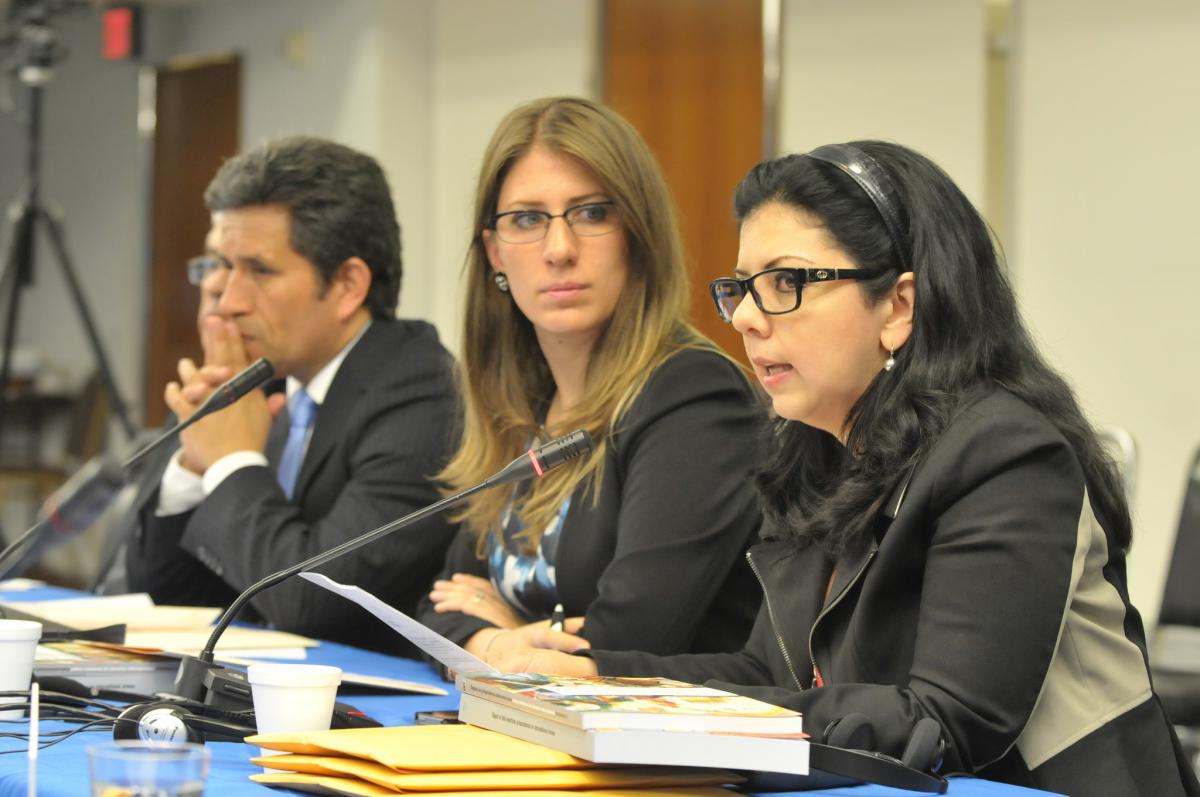
The organizations denounced the persisting weaknesses of criminal systems, which undermine the duty of States to prosecute these crimes and combat impunity, even when most of the region has made progress in defeating amnesty laws.
On November 1st, Due Process of Law Foundation (DPLF) along with Fundacion de Estudios para la Aplicacion del Derecho ( FESPAD ) from El Salvador, Instituto de Defensa Legal (IDL) from Peru, Centro de Investigación y Docencia Económicas from Mexico, Myrna Mack Foundation from Guatemala and Centro de Derechos Humanos de la Facultad de Derecho de la Universidad Diego Portales from Chile, participated in a hearing convened by the Inter-American Commission on Human Rights (IACHR) during the 149º period of sessions.
At this hearing, the organizations presented a report documenting progress, obstacles and challenges remaining in the prosecution of grave human rights violations by domestic judicial systems in Guatemala, El Salvador, Argentina, Peru and Chile, and requested that the Commission strengthen its dialogue with the States, in particular with the Judiciary, so that the pending cases are effectively investigated and prosecuted, and to consider preparing a thematic report to systematize the jurisprudence of Inter-American system of human rights on due diligence in investigating these crimes and best practices developed by national justice systems on this matter.
The information provided was based on a recent DPLF publication titled Digest of Latin American jurisprudence on international crimes, Volumes I and II , authored by Ximena Medellín, which compiles and analyzes the most important judicial decisions concerning the prosecution of international crimes of the continent, as well as other publications and litigation experiences of the other organizations.
During the hearing, the organizations informed the Commission that in the last decade in Latin America there has been remarkable progress in breaking down the legal obstacles, such as amnesties, for the prosecution of those responsible for crimes committed in armed conflict or military dictatorships, through judicial decisions of constitutional courts that led to the judgments of criminal courts. However, those accomplishments vary significantly from country to country and sometimes coexist with legal setbacks, such as the failed attempt to reduce penalties for those responsible in the Barrios Altos case, or as recently happened in the genocide case against Rios Montt in Guatemala in which the Constitutional Court issued a ruling that could open the door for the application of a 1986 Amnesty Law, in spite of that law having been repealed by a subsequent Amnesty Law in 1996, which prohibits its application in these crimes.
- See the pictures and video of this hearing.
- Report presented before the IACHR.
- Related publications: Digest of Latin American jurisprudence on international crimes, Volume I and Volume II





